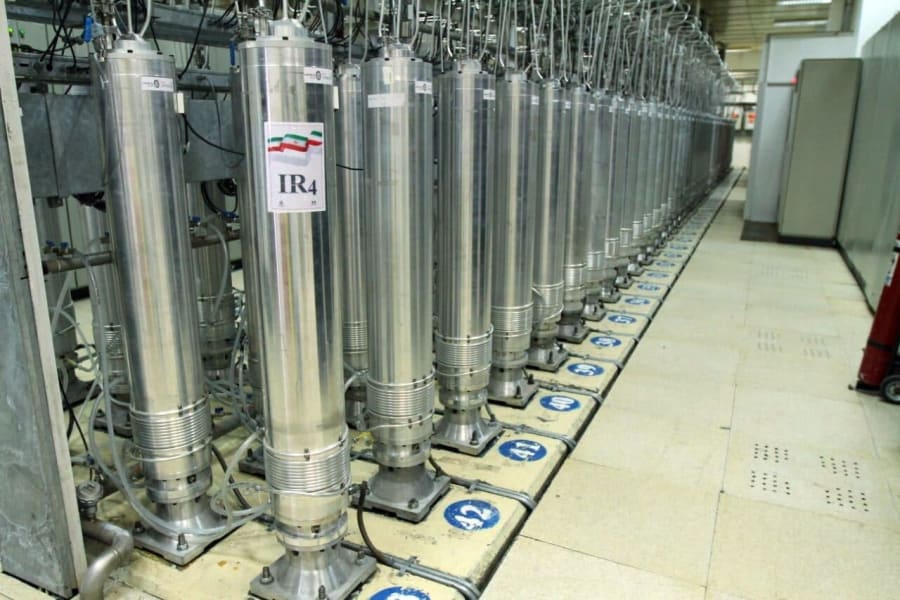Netanyahu says 'international community must act now to stop Iran' following UN report revealing Iranian nuclear activity

The UN’s International Atomic Energy Agency (IAEA) published a confidential report on Saturday stating that Iran had conducted covert nuclear activity at three undeclared sites as part of a structured nuclear program that operated until the early 2000s. This included the use of undeclared nuclear material.
The report further reveals that Iran’s stockpile of enriched uranium jumped by 953 kilograms in the last quarter, reaching a total of 9,247 kilograms, including a significant amount enriched up to 60% a level which, according to the agency, is theoretically sufficient to produce a nuclear bomb.
The agency emphasized that despite the lack of evidence of an active nuclear weapons program today, Iran’s conduct – such as destroying evidence and refusing to cooperate – continues to raise serious concerns. IAEA Director-General Rafael Grossi once again urged Iran to cooperate fully and immediately.
Israeli Prime Minister Netanyahu’s office responded, “The IAEA has reported a grave and unequivocal report on Iran’s nuclear program. The agency presents a stark picture that serves as a clear warning sign: despite countless warnings by the international community, Iran is totally determined to complete its nuclear weapons program".
The report strongly reinforces what Israel has been saying for years – the purpose of Iran’s nuclear program is not peaceful. This is evident from the alarming scope of Iran’s uranium enrichment activity. Such a level of enrichment exists only in countries actively pursuing nuclear weapons and has no civilian justification whatsoever.
The report clearly indicates that Iran remains in non-compliance of its fundamental commitments and obligations under the Non-Proliferation Treaty (NPT), and continues to withhold cooperation from IAEA inspectors.
Tehran tries to pre-empt the blow? Iranian allegations against Europe
Iranian political sources claimed that the United Kingdom, France, and Germany are exerting “intense pressure” on the IAEA to act against Iran, despite ongoing nuclear negotiations between Iran and the United States. These Iranian officials told the pro-Iranian Axis outlet Al-Mayadeen that the “European troika’s” pressure began before negotiations resumed and continues even as Iran claims to be sending “positive signals.”
In talks held in Istanbul between Iranian representatives and those European states, Iran warned that any escalation would negatively impact negotiations with the U.S., however, the European countries reportedly did not change their stance. Additionally, Iranian officials reiterated via diplomatic channels that Iran would respond to any escalation with “appropriate” nuclear measures.
Iranian officials believe the European moves at the IAEA are a precursor to triggering the snapback mechanism – a clause in the 2015 nuclear deal allowing for the re-imposition of sanctions if Iran is found in violation. The mechanism can be invoked until October.
Iranian sources stated, “All equations will change once the snapback mechanism is activated, and Iranian nuclear policy will fundamentally shift.” They added that Iran still leaves room for a diplomatic resolution to the nuclear issue but demands rational behavior from the UK, France, and Germany in light of Iranian warnings.
The head of Iran’s Atomic Energy Organization said there had been “some progress” in the nuclear talks, but rejected any demand to eliminate uranium enrichment. He called such demands a “twisted dream” aimed at the Israeli public.
Mohammad Eslami added, “Talks of zero enrichment are primarily directed at the Zionist community. These are rumors without any basis in the reality of the negotiations.”
Iranian Foreign Minister Abbas Araghchi reiterated on Saturday that uranium enrichment has always been a red line for Iran.
“No one in Iran will agree to give up this right.” He added that Iran is not interested in developing nuclear weapons, saying, “We have always adhered to the nuclear non-proliferation convention, unlike Western countries that have failed and abandoned the principle.”
These Iranian statements come amid U.S. pressure to reach a deal soon. Just yesterday, U.S. President Donald Trump said that a deal would be reached “in the not-too-distant future” and that Iran “does not want to be bombed.”
Itamar Vishenko is a KAN 11 News correspondent.
Omer Shahar is a correspondent for KAN 11 news.













